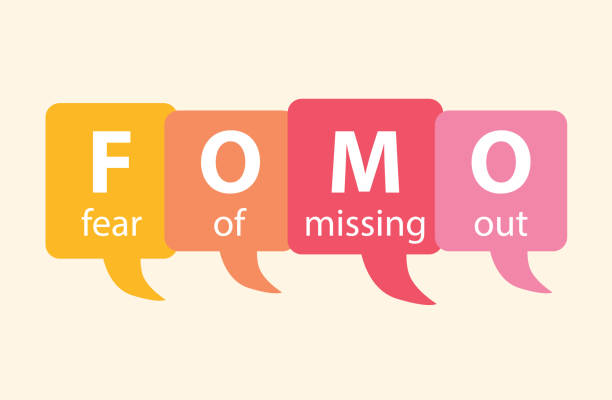The familiarly used term FOMO is an acronym that stands for: fear of missing out. Popularized as a widely known term in 2004, FOMO is perhaps the best description for the ever tiring pursuit of a fulfilling life. As Generation Z, individuals born between the years 1997 and 2012 enter college and the workforce, FOMO can be both a motivator as well as a debilitating factor.
The slanginess of the term FOMO makes it difficult to take seriously in introspective or philosophical conversations, but it’s an effective description for the pressure young adults have to live up to their potential.

Finances Online
While these statistics focus on millennials’ experience with FOMO (see the inclusion of Facebook as a relevant social media) it’s still indicative of the way social media influences your choices.
Social media, the perpetual bane and boon of my own existence, revolutionized the concept of FOMO. Life experiences are exploited for likes and comments, in hopes that friends, acquaintances, and strangers will envy your life.
The ability to alter people’s perceptions of your life, personality and achievements has never in the past been this simple. As a result, I’m constantly being subjected to the lives of people I went to highschool with, wondering if they truly are living a more fulfilling life than I am based on their monthly photo dumps on Instagram.
Running Start student Kseniya Shautsora commented on social media and its impacts, “I would delete my social media if I wasn’t scared of what I’d be missing out on.”
I find myself constantly thinking about the next great moment in my life, the next event that I’ll be telling future nieces and nephews about in the hopes they’ll refer to me as ‘the cool aunt’. As a result, the question at the back of my mind is often: Am I even having fun?
When asked about being able to live in the moment, Shautsora said, “I do feel like I’m able to live in the moment. When I feel like doing something, I just do it. I don’t want to have regrets.”
At any one moment, there’s a multitude of opportunities available, especially to students. Finding a balance between current life experiences and future career opportunities often results in being paralyzed by choice.
The college experience is where FOMO can become particularly debilitating, between balancing classes, the many offered activities on and off of campus, as well as attempting to build a foundation for your future. Even what to eat for lunch can mean worrying that there was a better tasting option.
Princeton student Michelle Greenfield, wrote “I Never Understood the meaning of FOMO … Until I Got to Princeton” in an effective summation of how college can amplify the impacts of FOMO on college students entering a new phase of their lives.
Autumn W, a Running Start student at Highline spoke on how the idea of college is where FOMO becomes most pronounced. “Seeing friends post about going out of state for college makes me worry that I’ll be missing out on the college experience,” she said.
The pressure to prepare for college while in high school is also a source of FOMO for many, including Autumn W. “I feel like I might not be as prepared for college as a lot of my friends since I haven’t really done clubs or anything like that.”
Living in the moment, a relatively foreign concept to someone with a dopamine addiction, means an increased focus on mindfulness. Journaling, meditation, breathing exercises and reduced screen time are the most recommended solutions from medical and therapeutic professionals.
For another perspective on FOMO, this Linkedin article revolving around stockbroking is an interesting read and proof that FOMO is nearly inescapable in all manners of life.

